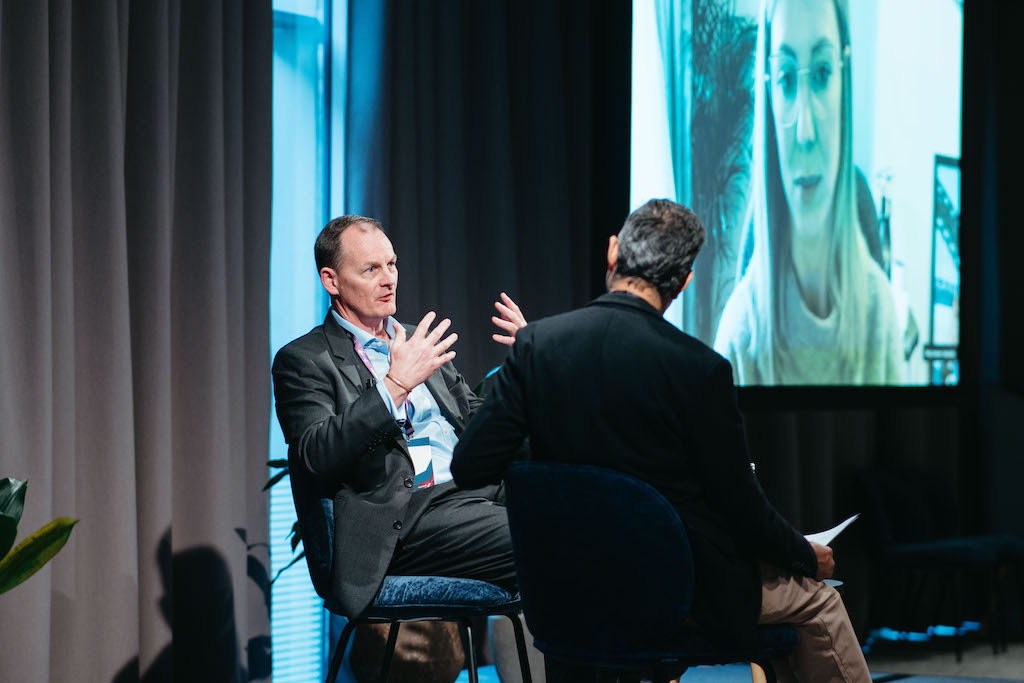At this year’s micebook EXPO, industry experts gathered to discuss how event agencies, procurement teams, and corporate stakeholders can work together more effectively.
The session featured insights from Kevin Lecompte, Senior Partner, The Gap Partnership and Julianne Johnson, Procurement Specialist, EDF Renewables on how agencies can improve collaboration, pitch more effectively, and build long-term relationships.
Here are the key takeaways from the discussion…
Procurement is About Value—Not Just Cost
A common frustration among event agencies is that their creativity, experience, and strategic input are often boiled down to price in the procurement process. However, both experts emphasised that value, not just cost savings, is the primary driver in modern procurement decisions.
Kevin Lecompte stated: “Procurement isn’t just about cutting costs. It’s about maximising value. The most successful negotiations are those that go beyond price and uncover the real worth of the deal for all parties involved.”
Julianne Johnson added that in industries like renewable energy, procurement also prioritises health and safety, risk management, and compliance—factors that can outweigh simple cost savings. Agencies that demonstrate how their events deliver on their clients’ broader objectives will stand out in the bidding process.
Agencies Must Understand Procurement’s Decision-Making Process
She also shed light on the weighted scorecards used in procurement processes, which determine which agency wins a contract. She advised agencies to always ask for the scoring criteria in advance:
“If you don’t know the scoring criteria, you’re pitching blind. Creativity might be worth 30%, but cost, sustainability, or logistical feasibility could weigh just as much. Knowing this helps you craft your proposal accordingly.”
She also emphasised that procurement teams often run credit checks and look for sustainability credentials, even if they don’t explicitly ask for them. Agencies should proactively highlight their financial stability and ESG (Environmental, Social, and Governance) commitments.
Building Relationships is Crucial—But Agencies Must Take the Lead
One of the most frequently asked questions from agencies is how to establish stronger relationships with procurement.
Lecompte stressed that agencies should not wait until an RFP lands to start engaging with procurement teams. Instead, they should proactively initiate conversations, offer insights on industry trends, and understand the company’s objectives months in advance.
“Relationship management is about understanding what’s most important to the company and demonstrating how you can add value.”
He also encouraged agencies to push back and provide constructive feedback when the process is flawed. “If the process isn’t working, say so. Give feedback. If procurement teams aren’t engaging properly, challenge them. The best agencies don’t just comply—they educate their clients on better ways to work together.”
Creativity Needs to be Monetised and Measured
A key challenge for event agencies is proving the tangible value of creativity in a way that resonates with procurement professionals. Lecompte advised that agencies should work on monetising creativity in their proposals.
“If I add X creative element to the event, will it improve audience engagement scores by 20%? Will it enhance brand perception? Procurement teams respond to numbers and measurable results, so find ways to quantify your impact.”
By framing creative proposals in terms of audience satisfaction scores, ROI, or long-term brand value, agencies can make a stronger case for why their event strategy is worth the investment.
Final Thoughts
Agencies that invest in understanding procurement’s objectives, build relationships early, and prove measurable value will have a competitive edge. The message was clear: adapt to procurement’s world, but don’t be afraid to challenge it.
Lecompte’s concluded: “Agencies that treat procurement as a partner, rather than an obstacle, will win more business. The best negotiations aren’t battles—they’re collaborations that unlock value for everyone involved.”
Procurement doesn’t have to be a barrier to creativity—if agencies understand how to communicate value, engage proactively, and challenge outdated processes. As Johnson summed up: “Openness, trust, and clear communication are the fastest routes to success. The agencies that make the effort to build strong relationships before, during, and after procurement processes are the ones that thrive.”

